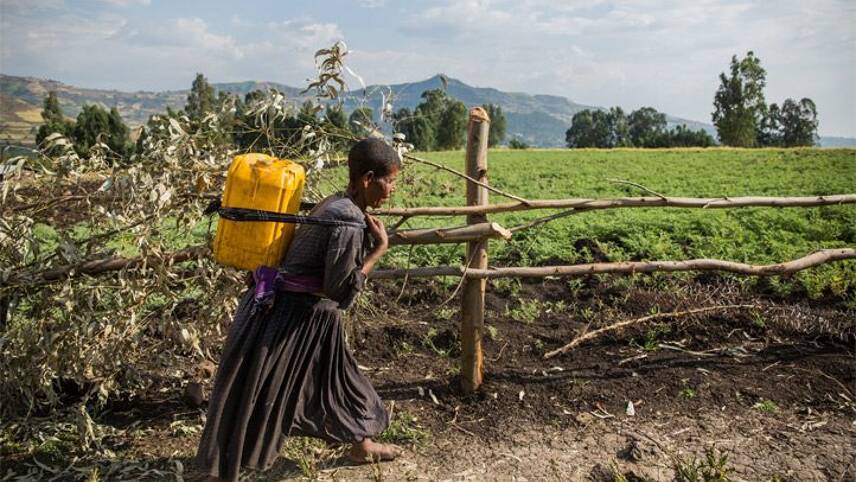Register for free and continue reading
Join our growing army of changemakers and get unlimited access to our premium content

The charity’s ‘Just add water: a landscape analysis of climate finance for water’ report reveals that only 8.7% of the climate-related funding provided globally in 2018 went to projects helping communities to withstand the impacts of the climate crisis on water. This is despite the fact that two billion people globally lack access to clean water, and that the UN is warning of widespread water scarcity by mid-century.
And, of this $6.5bn, only 10% was allocated to help the most vulnerable communities access running water and sanitation services. Of the 20 nations receiving the most funding for these programmes, 19 are classed as middle-income.
As a result, some of the lowest-income nations with the poorest water infrastructure receive less than $1 per person, per year.
The report also reveals that 86% of the finance offered for climate adaptation within the water sector takes the form of loans rather than grants. “This means that governments from already heavily indebted nations are faced with a choice between leaving their communities vulnerable to the impacts of climate change or getting into even deeper national debt,” WaterAid said in a statement.
Think-tank ODI helped WaterAid to produce the report. The organisation’s research associate Nathaniel Mason said it should act as a “wake-up call to refocus on helping the people and countries that are most vulnerable to climate change and related threats, to listen to their priorities better, and to think more creatively about how we finance climate change adaptation.”
“Reliable access to safe water, sanitation and hygiene is crucial for peoples’ resilience to climate change, just as it has been vital for people coping with Covid-19,” Mason added.
Growing concern
Back in March, WaterAid published research revealing that half of all countries receive less than £4 per person, per year, to spend on climate mitigation and adaptation. This research similarly found that developing nations facing the earliest and worst climate impacts are among the most underfunded.
The charity is using these findings to campaign for a rapid ten-fold increase in climate finance for water service adaptation, prioritising nations where universal clean water access is not yet available.
Also in March, the UN warned that a continuing shortfall in water infrastructure investments from national governments and the private sector has left billions exposed to the pandemic and will make the climate crisis worse in both the short and long-term. It estimates that more than half of the global population – 4.2 billion people – live with poor access to WASH.
Sarah George


Please login or Register to leave a comment.